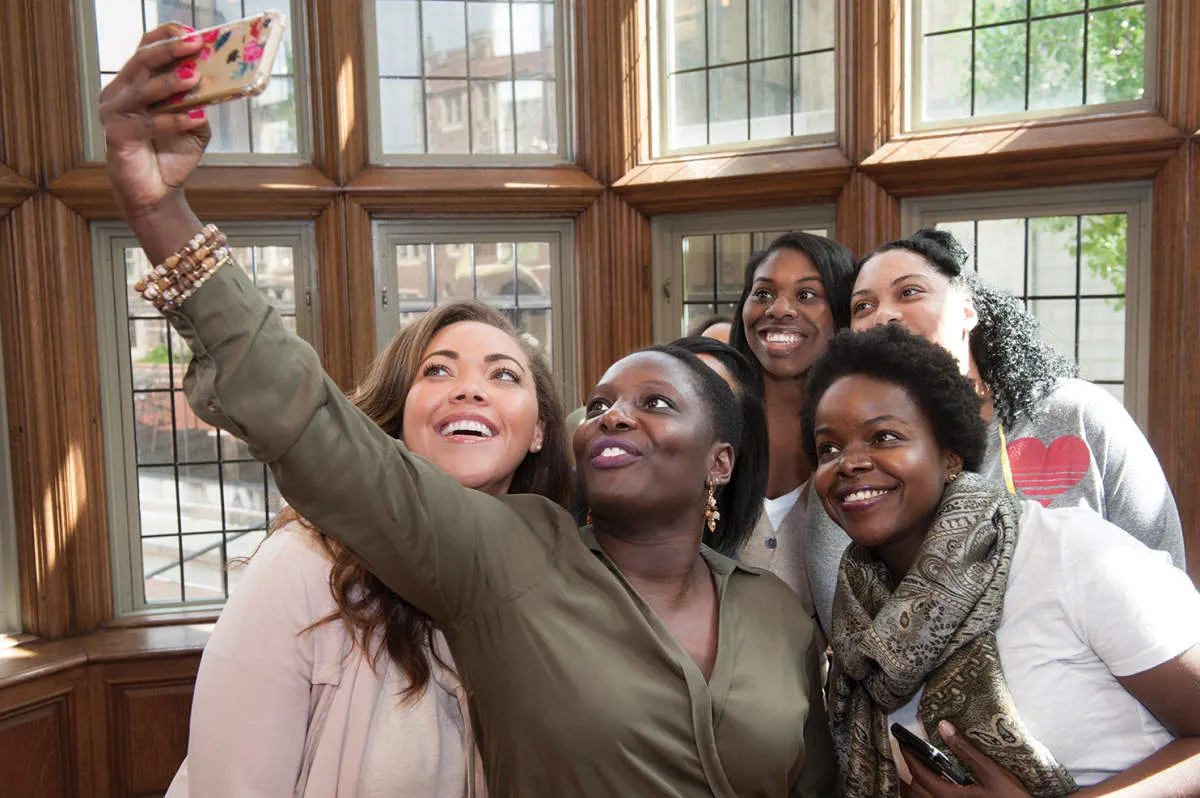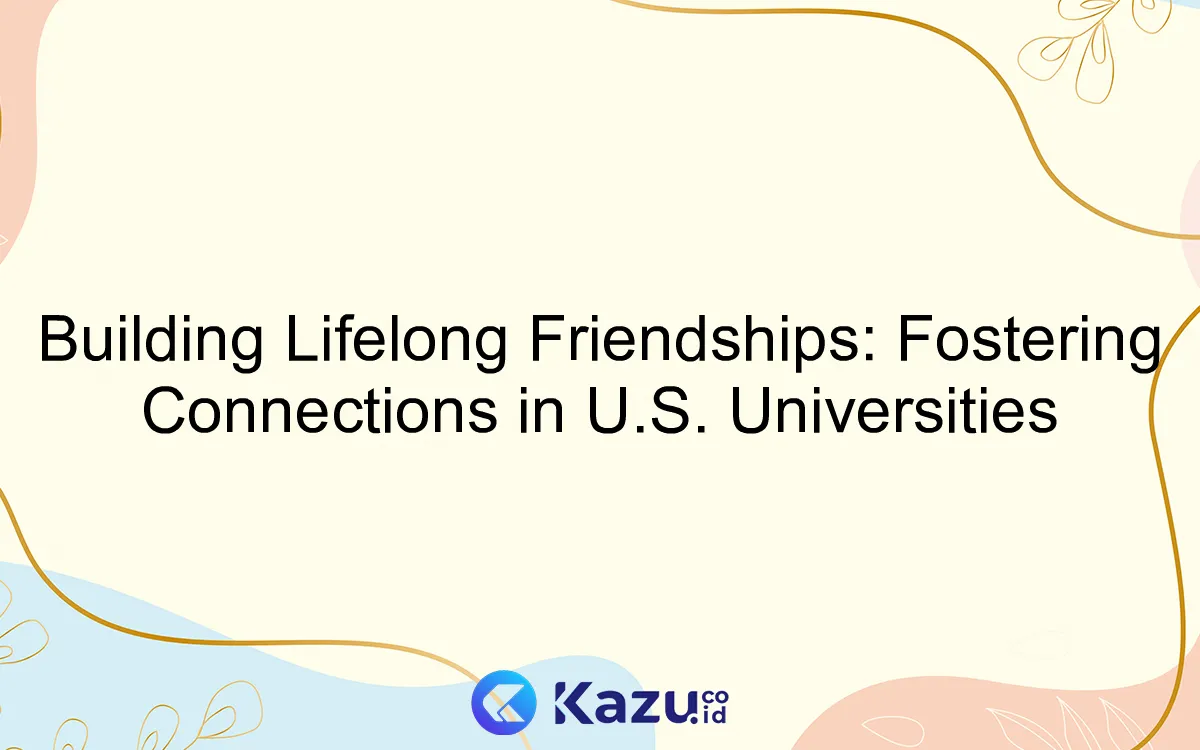Building Lifelong Friendships: Fostering Connections in U.S. Universities
Importance of Social Connections in the University Experience
Building lifelong friendships and fostering connections play a significant role in the overall university experience, particularly in U.S. universities. This article explores the vital importance of social connections in creating a fulfilling and enriching academic journey.
First and foremost, social connections within the university environment provide an essential support system for students. College life can be challenging and demanding, and having a network of friends helps alleviate stress, provides emotional support, and encourages personal growth. These connections create a sense of belonging and reduce feelings of isolation, making the overall university experience more enjoyable.
Furthermore, social connections offer opportunities for collaboration and networking. University is not just about academics; it is a time to explore new interests, participate in extracurricular activities, and engage in discussions. By forming connections with peers, students can expand their knowledge, learn from different perspectives, and develop vital skills such as communication, teamwork, and leadership.
Additionally, social connections in U.S. universities often extend beyond the academic years. Lifelong friendships formed during college can lead to valuable professional connections and future career opportunities. Alumni networks and the bonds created within them can be instrumental in students’ post-graduation journeys, providing mentorship, job referrals, and a supportive community.
Lastly, social connections contribute to personal and social development. University is a time of self-discovery and personal growth. By connecting with individuals from diverse backgrounds, students gain a broader understanding of the world, develop cultural competence, and enhance their interpersonal skills. These experiences foster empathy, tolerance, and acceptance, preparing students to thrive in a globalized society.
In conclusion, building lifelong friendships and fostering social connections are integral to the university experience. These connections provide support, facilitate collaboration and networking, offer long-term career benefits, and contribute to personal and social development. Universities should prioritize creating environments that encourage social interactions, as they play a pivotal role in shaping students’ academic and personal growth.
Strategies for Making Friends and Building Supportive Networks

Building Lifelong Friendships: Fostering Connections in U.S. Universities
Heading: Strategies for Making Friends and Building Supportive Networks
When attending a university in the United States, building lifelong friendships and developing supportive networks is crucial for a fulfilling college experience. Here are some effective strategies to foster connections:
1. Get Involved in Campus Activities
Participate in clubs, sports teams, or student organizations that align with your interests. Engaging in such activities will help you meet like-minded individuals and create opportunities to bond over shared passions.
2. Attend Social Events
Universities organize various social events to encourage students to mingle and socialize. Make sure to attend gatherings such as orientations, mixers, and campus-wide celebrations. These events provide a platform to meet new people and expand your network.
3. Utilize Online Platforms
Take advantage of online platforms designed to connect students within your university. Join Facebook groups, forums, or utilize dedicated networking apps to meet and interact with fellow students. These platforms can facilitate meaningful connections before even stepping foot on campus.
4. Seek Support Services
Most universities provide support services like counseling, mentorship programs, or international student networks. Don’t hesitate to utilize these resources to seek guidance and find individuals who can offer support throughout your academic journey.
5. Actively Engage in Classes
Participating in class discussions, forming study groups, or working on group projects can help you bond with classmates. By actively engaging in academic settings, you can build connections with peers who share similar academic interests.
6. Embrace Diversity
U.S. universities are melting pots of cultures and backgrounds. Embrace diversity by engaging with individuals from different ethnicities, nationalities, and backgrounds. This inclusivity will widen your perspective and expose you to lifelong friendships.
By implementing these strategies, you can proactively build friendships and establish a supportive network while studying at a U.S. university. Remember, the key is to step out of your comfort zone, be open to new experiences, and invest time and effort in nurturing meaningful connections.
Opportunities for Involvement and Community Engagement
Building Lifelong Friendships: Fostering Connections in U.S. Universities
One of the most rewarding aspects of studying at a U.S. university is the opportunity for involvement and community engagement. Through various programs and activities, students have the chance to build lifelong friendships and foster connections that go beyond the classroom.
Universities in the U.S. offer a diverse range of extracurricular activities that cater to different interests and passions. From student clubs and organizations to volunteering initiatives, there is something for everyone. These extracurricular opportunities provide students with a platform to meet like-minded individuals, explore new hobbies, and make lasting friendships.
Additionally, many universities have student-led organizations that focus on community service and philanthropy. These groups organize events and initiatives to give back to the local community, allowing students to make a positive impact while simultaneously forging meaningful connections with fellow students who share the same values.
Furthermore, universities often host events and workshops that promote cultural understanding and inclusivity. Through participation in these events, students have the chance to learn about different cultures, traditions, and perspectives. This exposure helps in the formation of global friendships and broadens students’ horizons.
In conclusion, the opportunities for involvement and community engagement in U.S. universities are vast. Through participation in extracurricular activities, community service initiatives, and multicultural events, students can build lifelong friendships and foster connections that will enrich their university experience, both academically and personally.
Conclusion
In conclusion, fostering connections in U.S. universities is crucial in building lifelong friendships. By participating in extracurricular activities, joining clubs and organizations, and engaging in social events, students can create strong bonds with their peers. These connections not only enhance their college experience but also provide a support system that extends beyond graduation.
